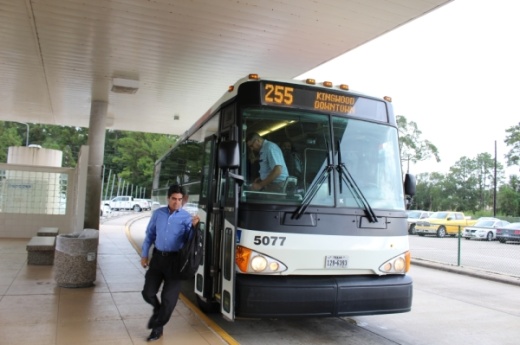Julie Fernandez, lead management analyst for revenue and fare policy at METRO, presented results of the fare-free study, which launched January 2019, at the board’s finance and audit committee meeting Jan. 15.
The study showed that although free fares for all riders would increase ridership by 30.4 million rides annually, implementing the program would cost the authority not only about $70 million annually in lost farebox revenue but $170.6 million in operating costs to add more vehicles and operators. Additionally, Fernandez said it would take several years to purchase vehicles and hire personnel, which would result in an estimated launch date of 2024 for fare-free service.
"It's not like we have an extra $70 million lying around with all the things we want to do," board Chair Carrin Patman said. "So it would have to be found money from some other source, but it turns out it's much more [expensive] than we dreamed."
METRO received $68.1 million in farebox revenue in fiscal year 2018-19, and officials estimate it will collect $68 million in FY 2019-20, according to METRO data.
Board Member Troi Taylor said he believes the negatives of the program outweigh the positives. He suggested the board should instead focus on making public transit safer and more reliable to increase ridership.
“I don’t think there’s any evidence that suggests we’re losing ridership because people—or potential riders—think our cost is too expensive,” Taylor said. “I think the real thing is trying to encourage people to ride because it’s better transit overall. So making it free, I don’t think is a real practical solution, especially when it’s costing METRO so much."
A local bus or METRORail fare is $1.25 per ride, according to the entity’s website. METRO also offers free and discounted rides to children, students, seniors, Medicare cardholders and disabled individuals. The authority last increased fare prices in 2008 on local fares from $1 to $1.25, and park and ride fares from $3.50 from $4.50, Fernandez said.
The study also included several other scenarios, such as offering reduced or free fares for students; offering free fares during only off-peak or peak times; and offering free fare on specific transit lines.
“It's just not feasible to do free fares," Board Member Jim Robinson said. "But we probably could look at reducing student fares ... and maybe drop to a reduced—I wouldn’t do away with the fare on the green routes completely—but maybe drop it to $1 or some lower number.”
METRO officials will continue to study other reduced- and free-fare options.
Additional reporting by Jen Para
Editor's note: The original version of this article stated that the study began in January 2019, then it was changed to read January 2020, per METRO. METRO officials since stated that the original published date, January 2019, was correct.
Correction: The headline has also been updated to include the correct quote from Board Member Jim Robinson.





